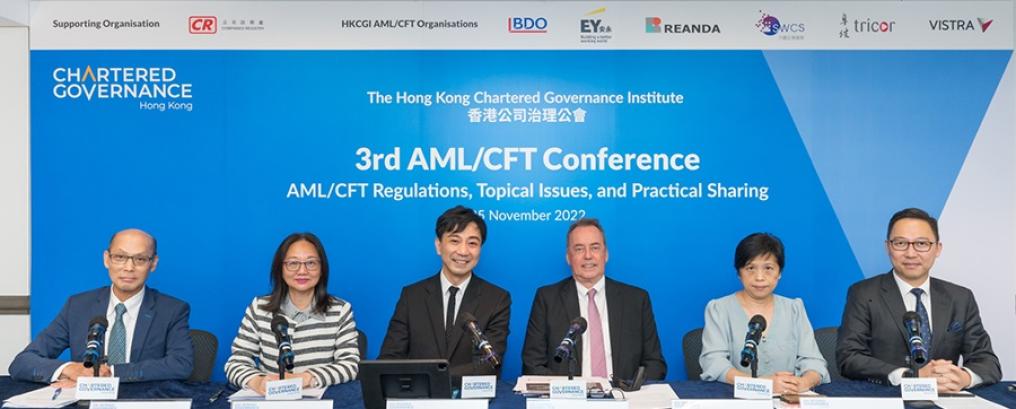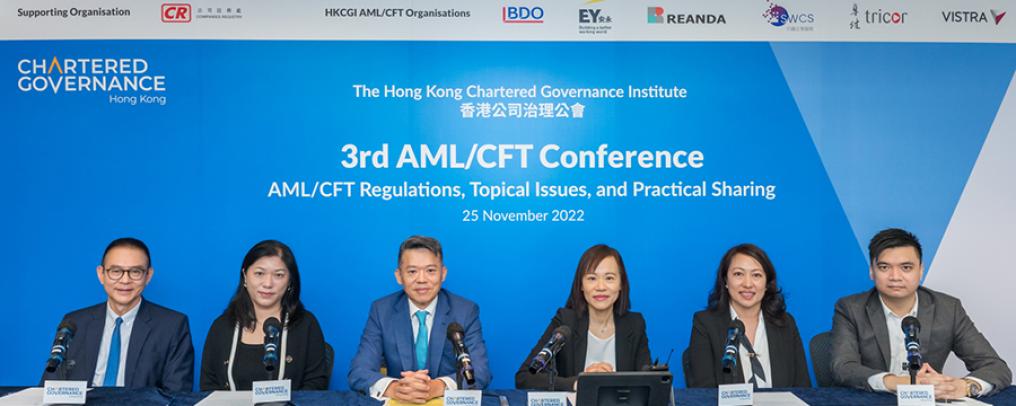Julia Leung SBS JP, Chief Executive Officer, Securities and Futures Commission (SFC), gives an update on the SFC’s views on the metaverse, non-fungible tokens, Web 3.0 and the future of finance.
Japan’s Metabo Law (so called because the law combats ‘metabolic syndrome’, that is, pre-diabetes) was introduced by the Japanese government in 2008 with the aim of reducing the waistlines of the middle-aged population. Citizens aged 40 to 74 are required to have their waistlines measured every year, and those whose waistlines exceed a certain threshold have to attend mandatory counselling sessions and their employers are fined.
The Metabo Law was not without controversy when it was first introduced. Many in Japan and elsewhere saw this as a private matter and considered the law to be paternalistic, if not downright intrusive. But that misses a wider point – the law aimed to reduce the rates of diabetes and cardiovascular diseases, and in turn ease the burden on the country’s public healthcare system. Today, Japan enjoys the lowest level of obesity and the highest life expectancy among developed countries.
You may ask – what does this have to do with my theme today? The crypto community has long believed that regulation inhibits innovation, limiting fintech development and thus investor choice. But this belief was shaken by the collapse of Luna and Terra in May, followed by the bankruptcy of Three Arrows and suspended withdrawals by crypto lending platforms. Just like obesity, the excesses of certain crypto firms threaten not just their own well-being, but also that of investors and the entire crypto ecosystem. The market capitalisation of crypto assets has now shrunk to about US$1 trillion, from a peak of US$3 trillion a year ago.
Up to now, many jurisdictions have adopted a light-touch approach to regulating crypto-asset service providers. But the crypto winter has strengthened the resolve of global financial regulators to regulate crypto-asset service providers. In a statement issued in July, the Financial Stability Board (FSB) said ‘the recent turmoil in crypto-asset markets highlights their intrinsic volatility, structural vulnerabilities and increasing interconnectedness with the traditional financial system... An effective regulatory framework must ensure that crypto-asset activities posing risks similar to traditional financial activities are subject to the same regulatory outcomes, while taking account of the novel features of crypto assets and harnessing their benefits’.
When innovation meets regulation
The SFC was an early adopter of the approach the FSB is now advocating. Compared to those jurisdictions that regulate crypto-asset service providers from an anti–money laundering (AML) perspective, our approach to virtual asset trading platforms since 2018 has been a comprehensive one, providing for investor protection and market integrity, in addition to AML. It is based on the principle of ‘same business, same risks, same rules’. Centralised virtual asset exchanges operate in ways similar to stock exchanges and broker-dealers, and those we license under our securities regulatory regime are subject to similar standards that we have adapted to address the specific risks posed by virtual assets.
We also regulate the provision of virtual asset–related services by intermediaries. Licensed fund managers who manage virtual asset funds are subject to detailed requirements comparable to the Fund Manager Code of Conduct, but again we have incorporated additional measures to address virtual asset risks.
Our January Joint Circular with the Hong Kong Monetary Authority (Joint Circular on Intermediaries’ Virtual Asset–Related Activities, published on 28 January 2022) gave the green light to securities brokers and banks to offer their clients dealing services in virtual assets, provided that they partner with an SFC-licensed exchange and comply with other regulatory requirements. We also clarified the requirements that apply to the distribution of virtual asset–related products.
At a time when the global regulatory landscape is uncertain, our regulatory framework has provided clarity and consistency. It seeks to capture all the dimensions of the public’s interface with virtual assets so that investors are protected and also to address the prudential risks to financial institutions. To date, we have already granted approvals to eight virtual asset fund managers and one virtual asset exchange, with another one approved in principle, as well as to two brokers to trade virtual assets for their clients under omnibus account arrangements.
Let me be clear – by adopting this approach, we are supportive of the underlying innovative technology, distributed ledger technology (DLT); we also welcome the growth of the fintech community in Hong Kong. Non-fungible tokens (NFTs), the metaverse and Web 3.0 are beginning to reshape our lives. In particular, NFTs are now accepted as a new way to authenticate ownership and facilitate the transfer of artwork, music, videos and photographs. Meanwhile, GameFi, which typically refers to blockchain games that incentivise players with tokens, is another area that is growing exponentially. All this innovation has spawned new economic activities in art, culture, gaming and more. This is clearly something Hong Kong should support.
There are many useful applications of DLT in global finance and many financial institutions are now exploring how to tokenise financial assets, or develop their own tokens on private blockchains, in order to drive efficiency, provide transparency and resolve some decades-old frictions in clearing, settlement and payments. In the decentralised finance (DeFi) space, we see traditional financial products being replicated, but many of these activities are largely outside any regulatory system. IOSCO’s recent report on DeFi (IOSCO Decentralized Finance Report, published in March 2022) puts the total value of related transactions at more than US$250 billion, up from US$19 billion a year before.
The crypto winter shows that tapping these opportunities is far from straightforward, and in fact they are fraught with risks, with a lot of harm to investors. Investor confidence in this space is undermined by the spillover of the excessive risks taken on by a few firms. Bringing crypto-asset service providers into the regulatory fold is the only pathway to embrace innovation.
Guardrails for retail access to virtual asset products
Let me address the elephant in the room – the ‘professional investor only’ requirement for crypto-asset customers. These include clients of SFC-licensed trading platforms, securities token offerings and virtual asset funds.
When the SFC first introduced its regulatory framework for virtual assets in 2018, the crypto market was still relatively new. Given the novelty of our framework and the high volatility of crypto assets, we believed it was prudent to impose an overarching ‘professional investor’ restriction, at least at the initial stage, even though there are robust guardrails designed for investor protection.
Four years have now passed. While crypto assets remain volatile, their global market capitalisation has increased exponentially. From our own product survey, we note that investors bought HK$10 billion in virtual asset funds via overseas platforms in 2021, up from HK$8 million a year earlier. Investors now have a better understanding of the risks of trading these assets. In these four years, the crypto-asset ecosystem has also made substantial advances. More global financial institutions and service providers such as traditional custodians are entering this space and building institutional-grade infrastructure. Their entry has driven the growth of the digital ecosystem, making it more sophisticated in providing services that are comparable to mainstream finance. We have also gained experience in regulating virtual asset trading platforms and fund managers.
Given these developments, it is now an opportune time to review the ‘professional investor only’ requirement. In fact, our Joint Circular issued earlier this year already allowed the retail distribution of a limited suite of virtual asset–related derivative products traded on conventional exchanges.
Guidance on virtual asset futures exchange-traded funds
The SFC has been actively looking to set up a regime to authorise exchange-traded funds ETFs that provide exposure to mainstream virtual assets with appropriate investor guardrails.
We have come to believe that some initial concerns about virtual asset futures ETFs have become manageable and can be addressed with proper safeguards. Apart from the existing requirements for ETFs, virtual asset futures ETFs will also be subject to additional requirements related to their management company, investment strategy, disclosure and investor education.
At the initial stage, we expect the underlying assets to be confined to Bitcoin futures and Ether futures traded on the Chicago Mercantile Exchange.
More information is available in our latest circular on the authorisation of virtual asset futures ETFs for public offering in Hong Kong (Circular on Virtual Asset Futures Exchange Traded Funds, published in October 2022).
Guidance on security token offerings
The SFC sees potential benefits in the use of DLT in security issuance and trading, which may bring efficiency, transparency and lower costs to traditional finance. In 2019, we issued a high-level statement to clarify how our regulatory requirements apply to parties engaging in security token offerings (STOs), including offerings only to professional investors.
The landscape has evolved considerably since then. STOs are gaining traction among traditional financial institutions. And many of them are keen to tokenise traditional financial instruments like debt securities or investment fund units. We are prepared to adjust our regulatory response and allow retail access if proper safeguards are put in place.
Our preliminary view is that tokenised securities, as digital representations of traditional securities on a blockchain, should be treated in a similar way to existing financial instruments. In substance, they have similar terms, features and risks as traditional securities, so it does not seem appropriate to classify them as ‘complex products’ merely because they are issued or traded on a blockchain.
Under this approach, a tokenised plain-vanilla bond would be classified as a ‘non-complex product’, and therefore the firms distributing it would be subject only to the existing requirements for the distribution of conventional securities, consistent with our ‘same business, same risk, same rules’ approach.
However, the position may be different when a token’s features are more novel and complicated, and it does not have the legal wrapper of a financial instrument. Examples are fractionalised asset-backed tokens or tokens representing an income stream from projects. Depending on their terms and features, they will probably be classified as a ‘complex product’ and the licensed firms distributing them would need to ensure suitability and provide minimum information and warning statements. They will also be subject to the overarching ‘professional investor only’ restriction.
As an additional measure for all security tokens, we expect licensed firms to perform reasonable due diligence and conduct smart contract audits before the tokens are distributed to clients. Consequently, we will also revisit the requirements for listing security tokens on licensed virtual asset exchanges and see if any modifications should be made.
With these proposals in mind, we are working on a circular to set out the modified security token regime in detail and will publish it when ready.
Hong Kong’s new VASP regime
My last update relates to Hong Kong’s new virtual asset service provider (VASP) regime. The Anti–Money Laundering and Counter–Terrorist Financing (Amendment) Bill, passed by the Legislative Council on 7 December 2022, makes it mandatory for centralised virtual asset exchanges offering services in Hong Kong to be licensed by the SFC. The SFC will consult the public on the more detailed requirements.
During the Bills Committee stage, a lot of feedback was received from LegCo members and the public on whether access to SFC-licensed VASP should be restricted to professional investors only, even though this is not hardwired into the Bill. Those arguing for the professional investor requirement said any relaxation would ‘legitimise’ crypto assets. Those in favour of retail access to SFC-licensed platforms claimed that denying access would push retail investors to trade on online virtual asset trading platforms located overseas that are subject to little or no regulation. In fact, some are downright frauds.
In light of the feedback, the SFC is minded to consult the public on whether the professional investor only requirement could be relaxed, and if so, what should be the governance procedures and listing criteria for the VASP to admit tokens for secondary market trading by retail investors. The SFC’s fintech unit is now intensively soft consulting the industry and stakeholders on this and other issues before finalising the proposals.
Future of finance
In closing, I would like to say we could be on the cusp of the future of finance, if we get it right. And that’s a big if.
In this future vision, the underlying technology is so potent that traditional finance as we know it today could be reshaped. More efficient clearing and settlement of transactions would be enabled by DLT.
Investors would be offered a whole suite of financial products leveraging DLT and smart contracts. But whether that vision could be realised depends on a lot of things. First and foremost of them is trust.
As we all know, traditional finance is built on trust. It is founded on a well-balanced regulatory system that revolves around intermediaries, brokers, fund managers and the like, and is also focused on investor protection and orderly, fair and transparent markets. But the selling point of the DeFi ecosystem is its ‘peer-to-peer’ nature, which aims at disintermediating Tradfi institutions by a series of smart contracts and digital protocols. Some DeFi operators are intentionally elusive to minimise liability, regulatory scrutiny or both.
Following the lead of the FSB, regulators worldwide will be relentless in pursuing a regulatory solution to DeFi and other parts of the crypto ecosystem to protect investors and market integrity. Just like the Metabo Law, robust regulation is good for your health, it is good for the sustainable development of the crypto ecosystem and it helps build trust among the public and counterparties in Tradfi. So, my final message for you is to embrace innovation and regulation as the pathway to the future of finance.
Julia Leung SBS JP, Chief Executive Officer
Securities and Futures Commission
This article is based on Ms Leung’s keynote address delivered on 31 October 2022 at the Hong Kong FinTech Week 2022.



